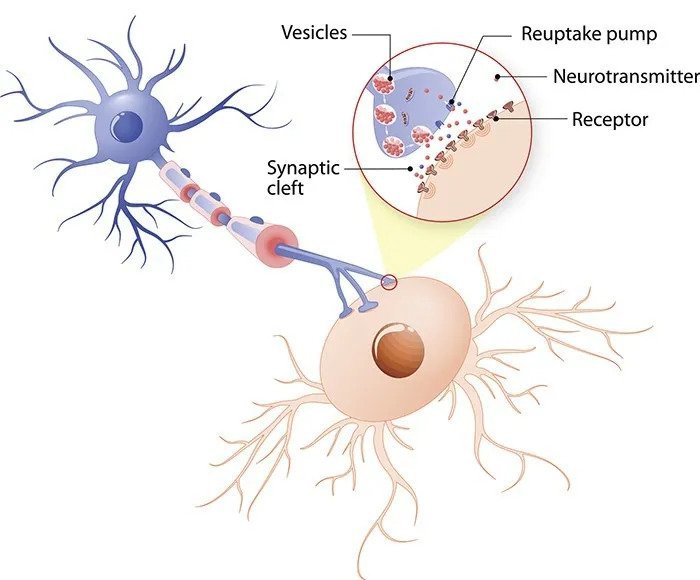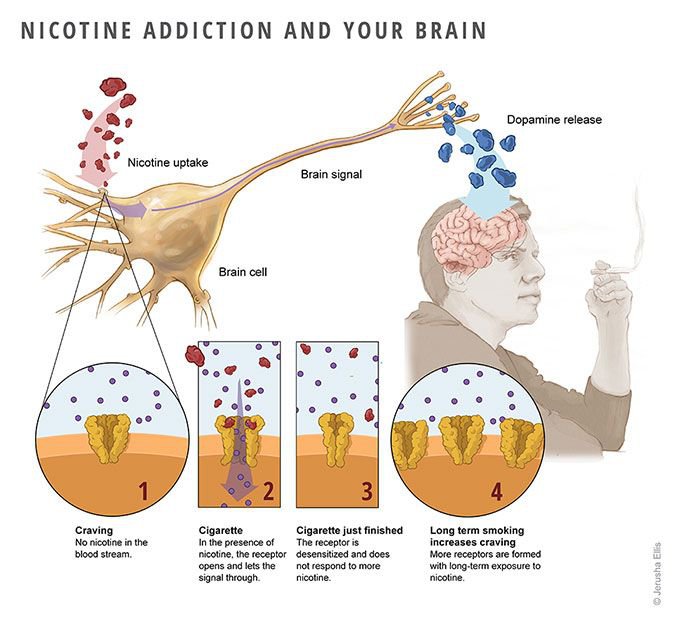How Nicotine Affects the Brain and Why Nicotine Addiction Occur
Nicotine is a very tricky chemical, let's take a look at how it works leads to addiction

How Nicotine Affects the Brain and Mood
Each neuron in the brain communicates with other neurons, the place of this contact where they touch and transmit signals to each other, is called synapsis. And the signal transmission is carried out with the help of another molecule — a neurotransmitter, the first of which was discovered is acetylcholine.
In other words, acetylcholine is like the mailman, the agent that allows communication between the sender neuron, and the recipient — another neuron or cell. The mailbox where the letter is dropped is a unique acetylcholine receptor located in this cell.
All you need to understand at this stage is that neurotransmitters completely control the quality and intensity of the areas they transmit signals to, for example, they can easily increase dopamine production.

You're probably wondering why the explanation of how nicotine works is so complicated with so many scientific nuances. Good news, we got to the simple answer of why people smoke:
Nicotine is chemically very similar to acetylcholine, and can also affect acetylcholine receptors by activating them. When nicotine enters the body, it substitutes the natural neurotransmitters, significantly increasing their total number in the body. As a result, they overstimulate parts of the brain that are interconnected with the mesolimbic dopamine system and its activation occurs — dopamine production begins. Dopamine is responsible for feelings such as mood, cognitive, and relaxation effects. This is the goal of smoking or vaping, that a person strives for.
So why does nicotine addiction occur?
The periodic use of nicotine causes the body to become habitual to high levels of neurotransmitters. As a result, more acetylcholine receptors in the brain on the one hand, but on the other hand, their sensitivity is reduced so that they have no chance to recover.
When nicotine comes regularly — there is enough dopamine in the body and the person feels good, then when smoking or vaping became unavailable, natural acetylcholine is not enough to maintain normal levels of the dopamine system — the person becomes numb and unhappy.

Restore brain function after nicotine is relatively easy
Studies show that on average, after three weeks of nicotine does not enter the brain, the physiological dependence will pass and the person will recover high performance and happiness.
But psychological addiction doesn't go away that quickly. Statistics say that 5% who waited those three weeks only on willpower, 70% of them start smoking again within the next 7 months because they remember that “good feeling”.
Why is psychological nicotine addiction more complex?
Let's first answer the question, why is there a psychological nicotine addiction? It happens because a person gets a kind of magic wand — the ability to manually control the brain.
A person without nicotine addiction always has a relatively stable level of acetylcholine receptor activation. When he gets bad or stressed activation level decreases and it just takes time for the nervous system to return to normal.
If nicotine addicted person feels bad, he goes and gets nicotine, it stimulates the dopamine system, mood, and performance. The half-life of nicotine is about an hour, and within the next hour, a person feels worse, much worse than a non-smoker. The smoker wants to feel good again, so he goes for another dose of nicotine. And in these peak moments, nicotine-addicted feels fine as a non-smoker. This psychological behavior is very strong and addictive, even if people understand its side effects.
